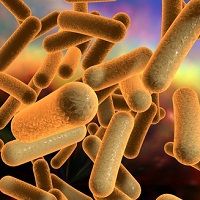Antioxidant Metabolism Determined by Gut Bacteria
Gut bacteria plays a role in regulating antioxidant metabolism, according to study findings published in the journal Molecular Systems Biology.

Gut bacteria plays a role in regulating antioxidant metabolism, according to study findings published in the journal Molecular Systems Biology.
Researchers from Chalmers University of Technology in Sweden used a generic mouse metabolism map and tissue specific computer models for the mice to demonstrate gut bacteria’s effect on antioxidant metabolism. The researchers determined that the microbiota in the small intestine consumed glycine, one of the three amino acids required for the synthesis of glutathione.
The researchers measured the amino acid levels in the mice’s portal vein to confirm the computer’s simulations. Glycine was found in the liver and colon tissues, which indicated to the researchers that the gut microbiome regulated glutathione metabolism in the small intestine, liver, and colon together.
“Some bacteria in our gut consume glycine, which is required for the synthesis of the glutathione, and imbalances in the composition of the bacteria may lead to the progression of the chronic diseases,” researcher and first author Adil Mardinoglu explained in a press release.
Previously, studies demonstrated that unchecked amounts in the plasma level of glycine and other amino acids could contribute to obesity, type 2 diabetes, and non-alcoholic fatty liver disease.
“Strikingly, the plasma levels of glycine are decreased in all subjects with the above mentioned diseases compared to the healthy subjects,” Jens Nielsen continued in the statement. “In this context, it may be of interest to study the microbial amino acids in the human gut in relation to their potential role in the development of such metabolism related disorders. The discovery that the bacteria in our small intestine consume glycine and regulate glutathione metabolism may led to the development of food products that can deliver beneficial bacteria, or probiotics, to the gut.”
The researchers say that the results of their study can aid the investigation into how bacteria contributes to the metabolic processes involved in the development of related diseases such as obesity, type 2 diabetes, non-alcoholic fatty liver disease and malnutrition.